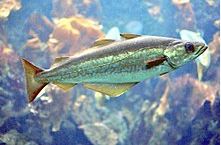When expressing concern about the article, NOAA wrote, "allegations made in the paper, are absent of transparency regarding the data, and assumptions supporting them are irresponsible and call into question the authors' conclusions."
The claim was that 15 percent of the US pollock entering Japan is from illegal, unreported and unregulated fisheries, and up to 20 percent of the salmon and crab coming from Alaska fisheries is likewise illegal. Basically, the fishing industry is letting criminal elements undermine their own revenue by letting people who skirt the rules compete more cheaply. It is in defiance of common sense, which may be why there are no data to support it. The data instead show perhaps 2 percent is off the books, which is like any industry.

Credit: Citron
Despite no evidence proving their assertion, the authors use their claim to argue for the creation of a new layer of bureaucracy. So why is this still on their the journal's site? The editor, Hance Smith, claims a year later he is waiting to hear back from the corresponding author.
That's a handy approach. No paper would ever be retracted if a corresponding author could just ignore emails. Andrew Wakefield, Gilles-Eric Seralini, Diedrik Stapel and Chuck Benbrook would all still have careers if they had known they could just ignore editors.
We can't expect for the public to have trust in journals if journals have no interest in being trusted guides for the public, and instead seek mainstream media publicity. Walton Foundation funded the work but hasn't done anything meaningful beyond a perfunctory statement. "Independently, we are reaching out to talk with all of the parties to ensure we fully understand the issues," wrote Barry Gold, director of Walton's Environment Program. No one can find any such requests from Walton, however.
John Fiorillo, Executive Editor of IntraFish, also notes that the paper is a rehash of similar claims from 2014. Since they cite themselves they are boosting their own impact factor, without ever showing evidence of why they believe the illegal seafood industry is 10X what data show.
Like a lot of studies by activists that seek to tear down the American fishing industry and abdicate seafood to foreign countries where standards really are lax, this looks like a bunch of carp.



Comments